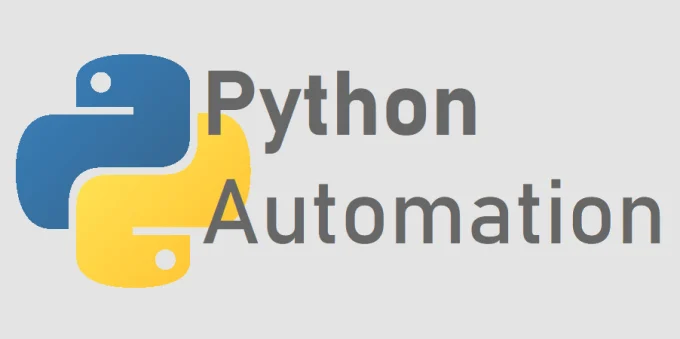Python Automation: Streamline Your Tasks with Scripts and Bots
 Sanjeet Singh
Sanjeet SinghIn today's fast-paced world, efficiency is paramount. Whether you're a developer, a data analyst, or a business professional, automating repetitive tasks can significantly save you time and effort. Python, with its simplicity and versatility, has emerged as the preferred language for automation. This guide will delve into how you can harness Python to streamline your tasks through scripts and bots.

Why Choose Python for Automation?
Python has skyrocketed in popularity within the automation sphere due to its user-friendliness, extensive libraries, and vibrant community support. With Python, you can automate a broad spectrum of tasks, ranging from basic file operations to intricate web scraping and data analysis.
Getting Started with Python Automation:
To embark on automating tasks with Python, your initial step is to install Python on your system. You can easily obtain the latest Python version from the official website and follow the installation instructions tailored to your operating system.
Once Python is installed, you can commence crafting your automation scripts using a text editor or an integrated development environment (IDE) like PyCharm or Visual Studio Code. Python's syntax is clear and intuitive, making it accessible for beginners to grasp and comprehend.
Automating Tasks with Scripts:
Scripts, small programs scripted in Python, are designed to automate specific tasks. These tasks can span from managing files in a directory to extracting data from websites. Here are some examples of tasks you can automate with Python scripts:
File Management: Python simplifies file operations such as renaming, copying, and deleting files. You can script a solution to organise files in a directory based on their extensions or standardise file names.
Data Processing: Python's extensive libraries for data manipulation, such as pandas and NumPy, are perfect for automating data processing tasks. You can create scripts to cleanse, transform, and analyze vast datasets without manual intervention.
Web Scraping: Python's BeautifulSoup and Scrapy libraries facilitate data extraction from websites effortlessly. Scripts can be written to scrape product prices from e-commerce platforms, gather news headlines, or collect social media information.
Task Scheduling: Python's built-in scheduler module enables you to automate recurring tasks on your system. Scripts can be developed to execute backups, dispatch email reminders, or update data at scheduled intervals, eliminating the need for manual intervention.
Building Bots with Python:
1Bots, automated agents programmed to perform tasks on behalf of users, are a burgeoning application of Python automation. These bots can interact with users through text or voice interfaces and execute commands or provide information based on predefined rules. Python offers numerous libraries and frameworks for bot development, including:
Chatbot Development: Libraries like NLTK and spaCy enable the creation of chatbots capable of understanding natural language input and providing intelligent responses. Chatbots find applications in automating customer support, answering FAQs, or delivering personalised recommendations on messaging platforms like Slack, Telegram, or Facebook Messenger.
Social Media Automation: Python's tweepy library facilitates interaction with Twitter's API, allowing automation of tasks such as posting tweets, retweeting content, or analyzing trends. Similarly, libraries like praw enable automation of interactions on platforms like Reddit, while InstagramAPI allows for automation on Instagram.
Task Automation: Custom bots can be developed to automate specific tasks within organizational workflows. Examples include monitoring server status and sending alerts during downtime, automating data entry tasks in spreadsheets, or managing workflow approvals.
Best Practices for Python Automation:
While Python offers tremendous power for automation, adhering to best practices is crucial to ensure that your scripts and bots are efficient, reliable, and maintainable:
Simplicity: Write clear and concise code that is easy to understand and maintain. Break down complex tasks into manageable components and use meaningful variable names and comments to document your code.
Error Handling: Anticipate potential errors and implement robust error-handling mechanisms in your scripts and bots. Utilize try-except blocks to catch exceptions and handle them gracefully, providing informative error messages to users when necessary.
Testing: Thoroughly test your scripts and bots to ensure they perform as expected under various scenarios. Utilize unit tests to validate individual components and integration tests to verify interactions between modules.
Security: Be vigilant about security considerations when building bots that interact with external systems or users. Follow security best practices such as input validation, authentication, and encryption to safeguard sensitive data and prevent unauthorized access.
Documentation: Document your scripts and bots comprehensively, including instructions for installation, usage, and troubleshooting. Provide clear examples and use cases to assist users in effectively leveraging your automation tools.
Conclusion:
Python automation offers a powerful avenue to streamline tasks and boost productivity across various fields. Whether you're automating routine operations with scripts or crafting intelligent bots to interact with users, Python provides the essential tools and libraries for efficient task execution. By adopting best practices and continuously honing your skills, you can emerge as a proficient Python automation developer, opening up new opportunities for automation within your workflow. Explore Python training institute in Kolkata, Delhi, and other cities across India to further enhance your expertise in this dynamic field.
Subscribe to my newsletter
Read articles from Sanjeet Singh directly inside your inbox. Subscribe to the newsletter, and don't miss out.
Written by

Sanjeet Singh
Sanjeet Singh
I am Sanjeet Singh, an IT professional with experience in the IT sector. I have a broad understanding of Data Analytics and proficiency across multiple layers of software development and testing, from the front end to the back end.